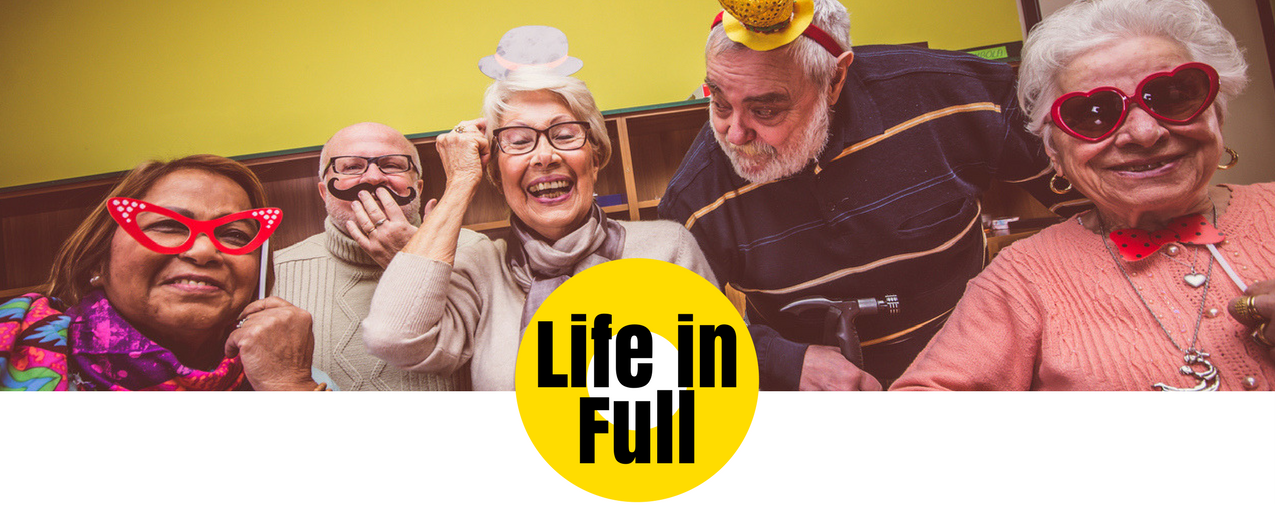Recreation Therapy helps empower individuals with barriers to their leisure live a more fulsome life
As a Recreation Therapist, my goal is to improve quality of life for individuals with potentially limiting conditions through meaningful activity. Recreation Therapy at Life in Full can help with your or your loved one’s social, emotional, physical, or mental well-being through enjoyable leisure. There may also be observed improvements to skills like: social effectiveness, self-efficacy, memory, community integration, self-awareness, fine and gross motor skills, physical functioning, emotional regulation, mood, coordination and more, depending on how we work together. However, the main byproduct of Recreation Therapy is experiencing enjoyment in an adapted, tailored way.
I currently serve the city of Toronto, Ontario. I meet my clients in the community, their homes, and in various living facilities, and provide much-needed respite time to their dedicated caregivers and loved ones.
*Please note: I am dedicated to providing a welcoming, inclusive environment for clients of all races, genders, religions, ages, orientations, and identities, as long as we are a good therapeutic fit.
Anyone who would like support with their leisure and recreation goals is a candidate for receiving Recreation Therapy through Life in Full! However, most often, I help individuals with limitations to their leisure participation. This could include the following:
Seniors and Elderly Individuals

Aging can introduce both obstacles and opportunities for leisure participation. Elderly individuals tend to have more free time, established interests, and disposable income to pursue healthy leisure. However, sometimes illnesses and health conditions can pose challenges to recreation, as can life changes like retirement, widowhood/death of a spouse, loss of independence, loneliness, isolation, etc. Recreation Therapy can help aging individuals realize their strengths, revisit established interests, and explore new leisure options. I can help you become more socially connected, help keep your cognitive skills in top shape, or work on physical fitness.
Dementia and Alzheimer’s Disease

Also: Vascular Dementia, Dementia from Parkinson’s or Huntington’s Diseases, Lewy Body Dementia, Frontotemporal Dementia, Korsakoff Syndrome, etc.)
Dementia can be an incredibly difficult experience for diagnosed individuals and their loved ones; experiencing dementia can feel like a disorienting, devastating loss, and having a loved one go through the disease is an emotional rollercoaster. I have worked with Dementia clients extensively and specialize in providing customized Recreation Therapy to individuals with Dementia or Alzheimer’s Disease, from mild or moderate to severe cases. I’m most passionate about providing my clients and their families with times of joy, fulfillment, and autonomy once again. By keeping your loved one cognitively engaged, physically active, and socially connected, they can maintain a sense of personhood and hopefully help maintain their existing abilities.
Acquired or Traumatic Brain Injury
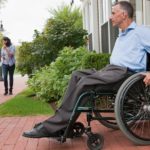
Every brain injury is different, and everyone experiences a brain injury differently. Some individuals lose their ability to focus, some have issues with mood regulation, and some have to re-learn how to walk and talk. I have a deep passion for working with those recovering from a brain injury, and have worked in rehabilitation with a wide range of clients and conditions. My favourite moments are when a person re-discovers a leisure interest they thought they’d never be able to pursue again or when a client builds the confidence to initiate an activity in a new way. Re-developing social skills, working on regulating emotions or physical functioning, and improving cognition through meaningful leisure can all be part of Recreation Therapy for a brain injury.
Stroke, Heart Attack, Spinal Cord Injury, Amputation, Burn or other traumatic events
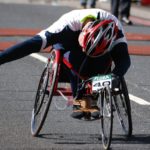
Unforeseen injuries and traumatic events can shake up an individual’s life and change the way they look at their leisure and abilities. My job, as a Recreation Therapist, is to shine a light onto the strengths and abilities that a person retains (or develops) despite these events, and introduce new ways of meaningfully engaging in leisure. A client may have to learn skills with a non-dominant limb, be introduced to adapted versions of their favourite sports, or overcome skill barriers – but the human spirit, determination, and some creativity can make many pursuits achievable despite barriers that arise from physical trauma.
Mental Health Challenges and Mental Illness

Bipolar Disorder, Depression, Anxiety Disorders, Schizophrenia, Conversion Disorder, Capgras Syndrome, Post-Traumatic Stress Disorder (PTSD), Eating Disorders, Obsessive Compulsive Disorders, Borderline Personality Disorder (BPD), Postpartum Depression
Mental health challenges can present barriers and obstacles to a fulfilling life that are often invisible to others. However, individuals experiencing the profound effects that are out of their control can feel stuck, helpless, and lost. Thankfully, Recreation Therapy interventions have proven to be extremely effective in alleviating depression, anxiety, psychotic episodes, and other characteristics of mental illnesses. Physical activities, art, music, animals, and adventure therapy have been most often cited in published research as effective alternatives or accompaniments to pharmaceutical interventions. Recreation Therapy can help individuals rediscover self-efficacy, hope, choice, confidence, and joy where they may have been clouded.
Developmental Disorders
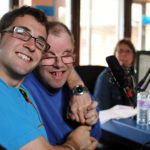
Developmental Disabilities, Learning Disorders, Autism Spectrum Disorder, Attention-Deficit/Hyperactivity Disorder (ADD or ADHD)
Developmental disorders can affect children and adults alike, and can make the world feel like a place that is ill-equipped to interact with those who have different abilities, social patterns, and responses to stimuli. Recreation Therapy for an individual with a developmental disorder can sometimes have peripheral benefits of: learning to channel abundant energy appropriately, developing effective social skills, acclimating to various stimuli, and engaging in activities in a meaningful way. Through creativity, flexibility and compassion, the world can feel more welcoming to those who experiences it differently.
Neurological Disorders
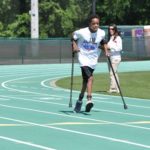
Parkinson’s Disease, Cerebral Palsy (CP), Huntington’s Disease, Amyotrophic Lateral Sclerosis (ALS) or Lou Gehrig’s Disease
Neurological disorders are known for taking from those who they affect; motor function, speech, muscle tone, independence and more, can all be stripped from a person who is diagnosed with one of these conditions. However, my focus is always on what Recreation Therapy and meaningful leisure can give to an individual and how I can meet them where they are – no matter what stage of the disorder they are at. I have been amazed at the drive, curiosity, joy, and insatiable appetite for life that my clients with neurological disorders often display, and it in turn drives me to help them experience their lives to the fullest.
Other Chronic Illnesses

Rheumatoid Arthritis, Osteoporosis, Osteoarthritis, Cardiovascular or Heart Disease, Cancers, Diabetes Mellitus, Fibromyalgia, Kidney Disease, Epilepsy or Seizures, Chronic Obstructive Pulmonary Disease (COPD)
Chronic illnesses can pose long-term challenges to individuals and often deplete a person of motivation and confidence. However, sedentary tendencies and inactivity that can occur as a result of persistent pain or other prominent symptoms sometimes make matters worse. Engaging in leisure in a safe, purposeful manner can help reduce pain, fatigue, and depressive moods, and improve functional abilities, self-efficacy, and outlook on life.
To provide high-level Recreation Therapy for such a variety of clients, I hold multiple certifications: physical techniques like Personal Training, Nordic Walking/Urban Poling, and Tiered Exercise for Seniors; Dementia-related methods like DementiAbility, Montessori Principles, Multi-Sensory Environments/Snoezelen and Laughter Yoga, Mental Health First Aid, and CPR for health care providers.
Every client is different, and my therapeutic approach is completely personalized and based on individual needs and preferences. I work closely with the individual and their loved ones to set tailored goals and objectives. Being able to give my full attention to one client at a time is what steered me into private practice – nothing beats the level of service at a 1:1 level! Learn more about the details of my services here.
